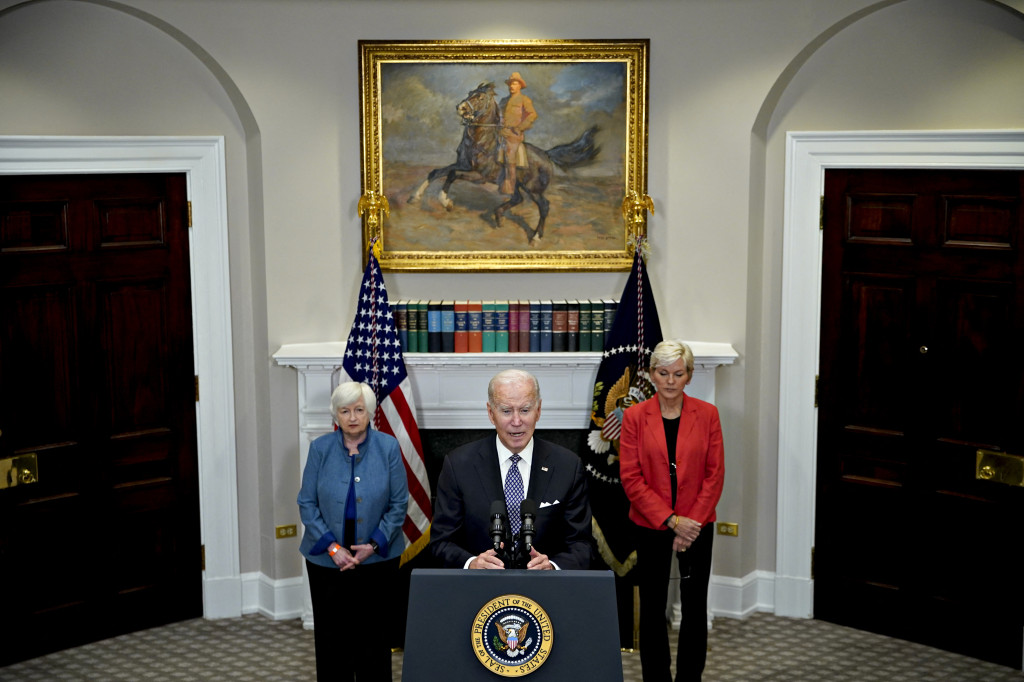President Biden presented a $3.2 trillion budget proposal on Wednesday, March 8th, which includes a significant increase in social programs, an increase in taxes on the wealthy and corporations, and large infrastructure investments. The proposed budget is part of Biden’s Build Back Better agenda, aimed at reducing economic inequality and promoting job creation.
 The proposed budget calls for increased spending on social programs, including education, health care, and climate change mitigation measures, while also proposing increased spending on infrastructure, such as highways, bridges, and airports. In order to finance these spending proposals, the budget would raise taxes on corporations, capital gains taxes, and taxes on wealthy individuals, while also increasing enforcement on tax evasion. The budget proposal is intended to address growing income inequality in the United States, which has been a major concern for Biden since his campaign. The budget proposal is also significant because it sets the stage for the 2024 presidential election, as it outlines the vision that Biden and the Democratic Party have for the country’s future. It is expected that the proposed budget will face significant opposition from Republicans, who are likely to oppose the increased spending and tax increases. Biden’s proposed budget includes a 10-year plan to increase spending on climate change initiatives to combat global warming, including significant investments in renewable energy and green infrastructure. This is in line with Biden’s pledge to make the United States a leader in the fight against climate change, and it is hoped that the proposed spending will help to reduce the country’s carbon footprint. The budget proposal includes a $200 billion plan to increase access to affordable housing and to address homelessness. This would include investments in the construction of new affordable housing units, rental assistance, and other measures designed to help families struggling with housing insecurity. Finally, the proposed budget includes a plan to increase funding for education, including universal pre-K for all 3- and 4-year-olds and increased funding for Pell Grants, which provide financial aid to low-income students seeking higher education. This is part of Biden’s efforts to address the education gap in the United States and ensure that every child has access to a quality education. In summary, President Biden’s proposed budget aims to increase spending on social programs, infrastructure, and climate change initiatives, while also raising taxes on corporations and the wealthy to finance these proposals.
The proposed budget calls for increased spending on social programs, including education, health care, and climate change mitigation measures, while also proposing increased spending on infrastructure, such as highways, bridges, and airports. In order to finance these spending proposals, the budget would raise taxes on corporations, capital gains taxes, and taxes on wealthy individuals, while also increasing enforcement on tax evasion. The budget proposal is intended to address growing income inequality in the United States, which has been a major concern for Biden since his campaign. The budget proposal is also significant because it sets the stage for the 2024 presidential election, as it outlines the vision that Biden and the Democratic Party have for the country’s future. It is expected that the proposed budget will face significant opposition from Republicans, who are likely to oppose the increased spending and tax increases. Biden’s proposed budget includes a 10-year plan to increase spending on climate change initiatives to combat global warming, including significant investments in renewable energy and green infrastructure. This is in line with Biden’s pledge to make the United States a leader in the fight against climate change, and it is hoped that the proposed spending will help to reduce the country’s carbon footprint. The budget proposal includes a $200 billion plan to increase access to affordable housing and to address homelessness. This would include investments in the construction of new affordable housing units, rental assistance, and other measures designed to help families struggling with housing insecurity. Finally, the proposed budget includes a plan to increase funding for education, including universal pre-K for all 3- and 4-year-olds and increased funding for Pell Grants, which provide financial aid to low-income students seeking higher education. This is part of Biden’s efforts to address the education gap in the United States and ensure that every child has access to a quality education. In summary, President Biden’s proposed budget aims to increase spending on social programs, infrastructure, and climate change initiatives, while also raising taxes on corporations and the wealthy to finance these proposals.
julie kim
Asia Journal


